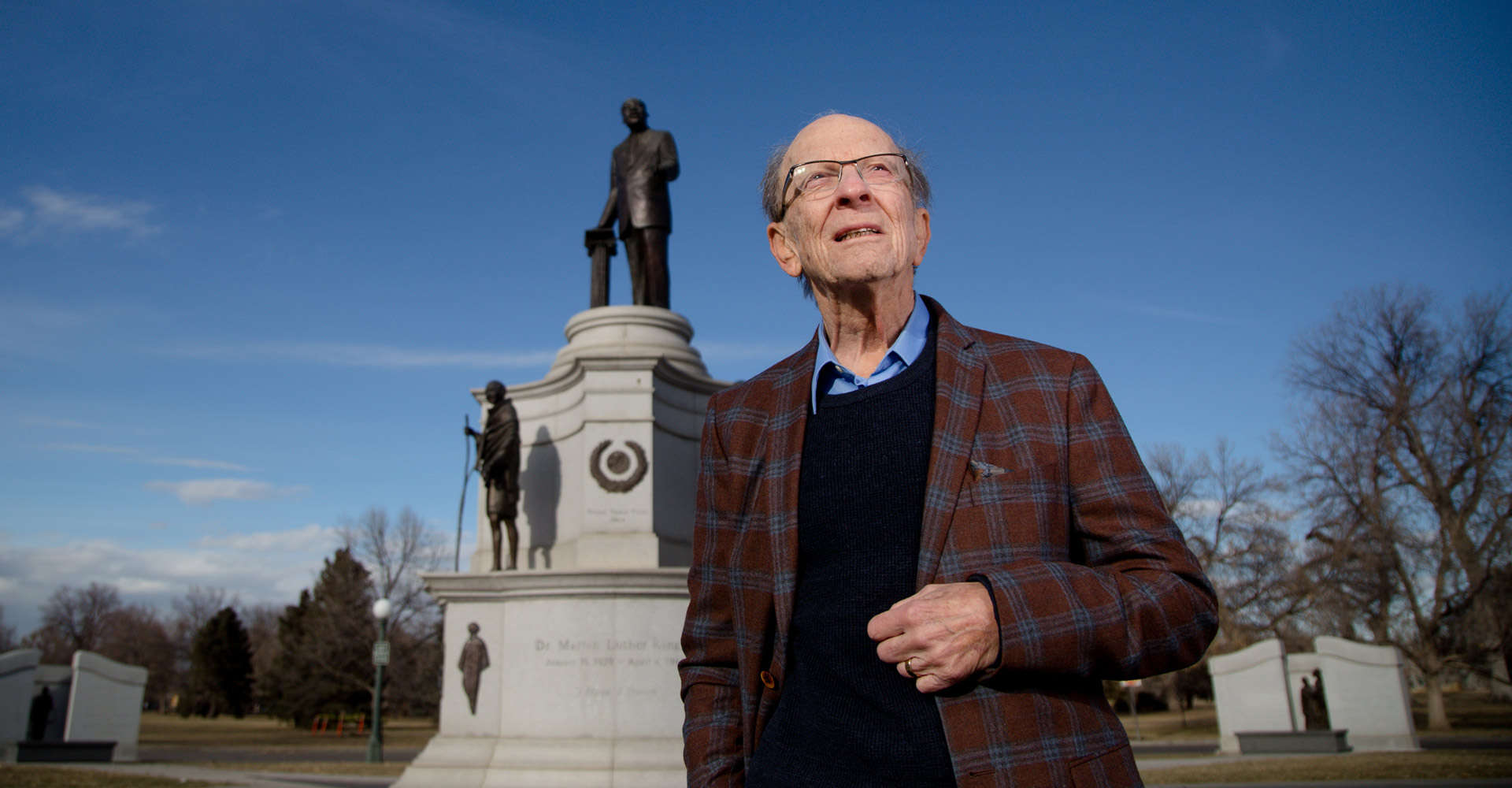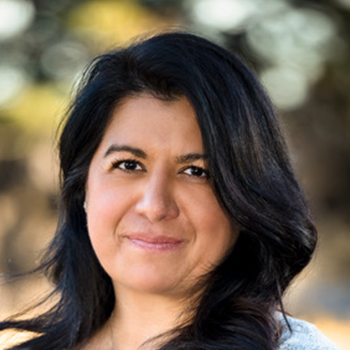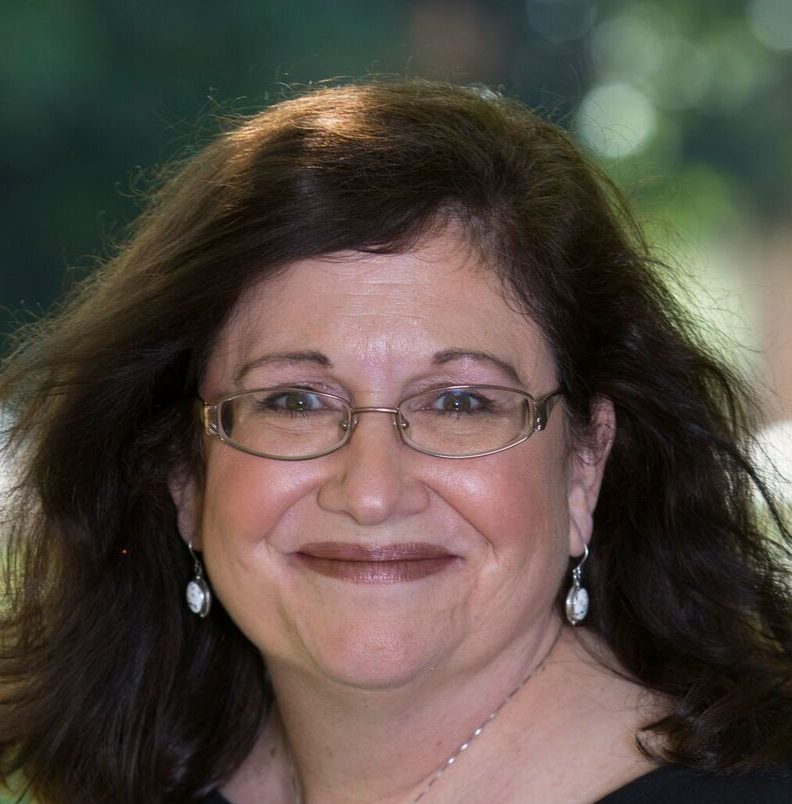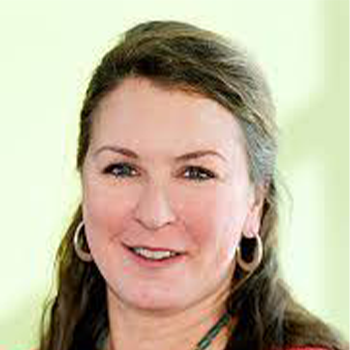Lessons from the Selma to Montgomery march
Civil rights champion Sheldon Steinhauser marched with Martin Luther King Jr. in 1965. Now, he's returning to Alabama with the Anti-Defamation League to retrace King's steps and advance his message.

When Sheldon “Shelly” Steinhauser marched with the Rev. Martin Luther King Jr. in the spring of 1965 from Selma, Alabama, to the capital Montgomery, they faced a thirst – for justice, yes, but also literal thirst as all the gas stations along the route shut off their water spigots in an attempt to leave the civil rights movement out to dry.
“It was apparent we weren’t welcome there,” Steinhauser said. “When we were marching through town, white folks on the terraces and balconies glared at us with the most vicious stares, not saying anything. There were no words, just hate in their eyes.
“A state patrol even rolled by us, and an officer gave us the finger. That’s what they thought of us.”
Yet in the face of such hate, hope – and defiance – sprang eternal. When the marchers passed through an African American neighborhood, residents bearing pitchers and canteens of water greeted them, knowing that the activists weren’t able to quench their thirst elsewhere.
A small gesture, but in a time of state-sanctioned intimidation, one that can’t be understated, said Steinhauser, 89, a former director of the Anti-Defamation League’s Mountain States region, former executive director of the Allied Jewish Federation (now JEWISHcolorado) and retired associate professor emeritus of sociology at Metropolitan State University of Denver.
“They were out there in the open, visible to anyone who could be photographing them – and who knew what kind of retaliation they’d face?” he said. “It was a profound moment – one that took resilience.”

Enduring commitment to justice
Steinhauser will relive those moments from 1965 next month as an ADL Scholar in Residence, a role that will see him lead an ADL group in a tour of significant civil rights locations in the American South to teach the movement’s history and further advance its core messages.
Participants will follow the exact path King took in spring 1965 during the 54-mile march, learning about the very prevalent danger faced by those neighbors who quenched the activists’ thirst.
Along the way, Steinhauser will also speak about his accomplishments in the West while working for the ADL. Those include the passage of the Colorado Fair Housing Act of 1959, which made the state the first in the country to pass fair housing laws forbidding racial or religious discrimination and set the precedent for comprehensive national legislation passed in the 1960s.
A lifelong champion for civil rights, Steinhauser understands perseverance and adversity.
He grew up in New York City and credited an anti-discrimination employment practices conference in Albany for cementing his path in advocacy. He began his work with the ADL at 20, first in Columbus, Ohio, and then Denver starting in 1957. He has called the Mile High City home ever since.
“Somehow, I deluded them into thinking I could do the job – and even though I had opportunities in other cities, I always found a reason not to take them and stay put (in Denver),” he said with a laugh.
Over the years, Steinhauser served Colorado in many ways. In addition to his regional and national leadership positions with the ADL and directorship of the Allied Jewish Federation, he was also a founding board member of the Latin American Research and Service Agency and director of development for the Skaggs School of Pharmacy at the University of Colorado-Anschutz Medical Campus. He also was a force in helping former six-term Colorado state Rep. Wilma Webb establish the observed MLK holiday in the state.
His accomplishments haven’t come without adversity, though. He was labeled a “warmonger” by Radio Moscow, the USSR’s official broadcast service, for his work to liberate Soviet Jews during the Cold War. He has also suffered numerous harassing phone calls and threats. For instance, after blasting then-Ku Klux Klan leader David Duke in an interview prior to his Denver visit, somebody threw a rock through his bedroom window, spraying Steinhauser and his wife with shards of glass.
Through it all, he remained steadfast to King’s teaching that the arc of the moral universe bends toward justice, words King spoke from the steps of the Alabama State Capitol on March 25, 1965, in the culmination of that fateful protest.
“Tenacity is one of the most important things you can have going for you,” Steinhauser said. “People you’re opposing may have as much if not more staying power; you’ve got to stick with it to see your mission through.”
“You shall reap what you sow”

Steinhauser’s accomplishments also include 46 years of instruction at MSU Denver – his “night job,” as he described.
“What I loved is that it wasn’t just this stuffy, dyed-in-the-wool institution,” Steinhauser said. “Instead of people just talking about how nice diversity was, at (MSU Denver), we were there, living it together. When you interact with people different than you, it helps lessen bias – both explicit and implicit. That’s an amazing launching pad.”
His wide-ranging commitment to justice has resulted in a litany of recognition, including an honorary doctorate in public service from Regis University, the Martin Luther King Jr. Humanitarian Award, Civil Rights Achievement Awards from the Colorado Civil Rights Commission and ADL and a declaration from then-Gov. John Hickenlooper of Sheldon E. Steinhauser Day on Nov. 17, 2016.
But as he approaches his 10th decade, Steinhauser isn’t slowing down. In addition to next month’s Civil Rights Tour of the South, on Sunday he will receive a Humanitarian-Community Award from the Greater Denver Ministerial Alliance, an organization of African American ministers, during an interfaith service at Temple Sinai.
“I’ve had an amazing career,” Steinhauser said. “I never would have thought I’d have these opportunities from such an early age; I’m lucky to have found myself early and never left.”
“It’s a nice way to begin my 90th year!” he added with a laugh.

Lessons for today
So what advice does a paragon from the civil rights movement have for today’s generation of activists?
“First off, clarify your values,” he said. “What matters to you? What do you want to leave behind? Whatever you’re a part of, remember in the long run it’s how you make a difference at the end of the day.”
He also recommends finding mentors from whom you can learn, prioritizing behavior over words and avoiding impulsiveness. Above all, though, success comes down to the same thing those water-bearing neighbors demonstrated back in 1965 – resilience.
“Today, the issues we’re facing are more visible, but there are also more doors that are open than there were before,” Steinhauser said. “To me, that’s where we find the joy: It’s not just sadness in the hate that’s become more apparent but in the strength and opportunities to work for progress.”
Though his road has had twists and turns over the years, it’s one he’s stayed the course on, even today at 89. Which leads to his final piece of advice: Recognize consequential opportunity.
When 100 Coloradans were heading to Alabama in 1965 to march with King, Steinhauser jumped at the chance to join. The young activist, who still sees himself as a bridge-builder today, marched arm-in-arm with a nun on one side and a rabbi on the other as part of an interfaith coalition. He recalled King as “unbelievably gracious – thanking us profusely as we were thanking him” during what would be “one of the peak moments of (his) life.”
But did he realize he was taking part in history marching along that road from Selma to Montgomery?
“Absolutely, without a doubt,” Steinhauser said. “Securing justice for all citizens is more than a Jewish value – it’s a human value.”



